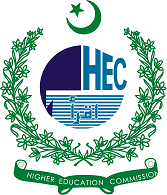US Assistance, Domestic Political Demands and Trajectory of Reforms in Saudi Arabia
DOI:
https://doi.org/10.58932/MULA0043Keywords:
American democracy promotion in Saudi Arabia, political demands in Saudi Arabia, reforms in Saudi Arabia, Saudi Arabian politics, Saudi societyAbstract
In recent decades, Saudi Arabia has experienced a relatively rapid pace of change. This article endeavors to analyze several fundamental aspects of the reforms introduced in the country during the twenty-first century, particularly in response to the events of September 11 and the Arab uprisings. The study adopts a qualitative approach and explores reforms in the realms of politics, culture, and religion. The article poses questions, such as how the American public and private sectors facilitated the reform process in Saudi Arabia following the September 11 attacks, how did the Arab revolts of 2011 impact Saudi state and society, and how did the government respond to the increasing demands for reform. Over the past two and a half decades, a diverse array of reforms has been implemented across various sectors, including politics, education, human rights, and the economy.
References
Adetunji, J. (2023, September 5). Saudi reforms are softening Islam’s role, but critics warn the kingdom will still take a hard line against dissent. Retrieved from The Conversation website: https://theconversation.com/saudi-reforms-are-softening-islams-role-but-critics-warn-the-kingdom-will-still-take-a-hard-line-against-dissent-210537
Allam, A. (2009, May 20). Saudi Arabia delays elections for two years. Financial Times. Retrieved from https://www.ft.com/content/eb5f62a2-449f-11de-82d6-00144feabdc0
Akbar, A., Ahmad, S., Khalid, M., Aslam, M. F., & Bhatti, M. A. A. (2024). Analyzing the Effect of Green HRM on Organizational Performance. Bulletin of Business and Economics (BBE), 13(2), 864-869.
Bilan, A. (2024). State sponsored feminism in Mohammed bin Salman’s Saudi Arabia (International Relations Undergraduate Honors Theses, Boston University). Boston University. Retrieved from http://open.bu.edu
Bogary, H. (1991). The Sheltered Quarter: A Tale of Boyhood in Mecca (O. Kenny & J. Reed, Trans.). Austin: University of Texas Press, Center for Middle Eastern Studies.
Bronson, R. (2006). Thicker than oil: America’s uneasy partnership with Saudi Arabia. New York: Oxford University Press.
Brown, N. J. (1998). Judicial review and the Arab world. Journal of Democracy, 9(4), 85–99.
Brown, T. (2022). Human rights in the Gulf states. UK Parliament House of Lords Library. Retrieved from UK Parliament House of Lords Library website: https://lordslibrary.parliament.uk/human-rights-in-the-gulf-states/
Center for Democracy and Human Rights in Saudi Arabia. (n.d.). Religious Freedom Briefing. Retrieved from www.cdhr.info/Campaigns/ReligiousFreedomBriefing
Chanin, C., & Gause III, F. G. (2004). U.S.-Saudi relations: A rocky road. Middle East Policy, 11(4), 26–36.
Cordesman, A. H. (2003). Saudi Arabia Enters the Twenty-First Century: The Political, Foreign Policy, Economic, and Energy Dimensions. Westport: Praeger Publishers.
Craner, L. (2006). Democracy in the Middle East: Will U.S. Democratization Policy Work? Middle East Quarterly, 13(3), 3–10.
Elmusa, S. S. (1997). Faust without the Devil? The Interplay of Technology and Culture in Saudi Arabia. Middle East Journal, 51(3), 345–357.
Farooq, B. U. A. (2024, May 3). “An unprecedented gathering”: Saudi activists unite in US to discuss ending kingdom’s autocracy. Retrieved from https://www.middleeasteye.net/news/outside-us-capital-saudi-activists-gather-discuss-ending-authoritarian-rule
Gause III, F. G. (2009). How to reform Saudi Arabia without handing it to extremists. Retrieved from https://foreignpolicy.com/2009/10/26/how-to-reform-saudi-arabia-without-handing-it-to-extremists/
Gulf Yearbook 2008-2009. (2009). Dubai: Gulf Research Center.
Hamzawy. (2006). The Saudi Labyrinth: Evaluating the Current Political Opening. Carnegie Papers, 3-25.
Hamzawy, A. (2007). Testimony before the House Committee on Foreign Affairs Subcommittee on International Organizations. Retrieved from https://carnegieendowment.org/posts/2007/06/promoting-democracy-and-human-rights-in-the-middle-east-the-case-of-saudi-arabia?lang=en
Hertog, S. (2006). The New Corporatism in Saudi Arabia: Limits of Formal Politics. In A. Khalaf & G. Luciani (Eds.), Constitutional Reform and Political Participation in the Gulf. Dubai: Gulf Research Center.
Human Rights Watch. (2024). Saudi Arabia: Events of 2023. Retrieved from https://www.hrw.org/world-report/2024/country-chapters/saudi-arabia
Imam, M. A., Ahmad, S., Bhatti, M. A. A., & Afzal, M. (2023). Contextualizing Research Approaches: The Role of Western and Islamic Philosophies in Shaping Methodology and Knowledge Creation. Al-Irfan, 8(16), 69-90.
Joint Statement of the U.S.-Saudi Arabia Strategic Dialogue. (2020, October 20). Retrieved from https://2017-2021.state.gov/joint-statement-of-the-u-s-saudi-arabia-strategic-dialogue/
Kapiszewski, A. (2006). Elections and Parliamentary Activity in the GCC States: Broadening Political Participation in the Gulf Monarchies. In A. Khalaf & G. Luciani (Eds.), Constitutional Reform and Political Participation in the Gulf (pp. 88–131). Dubai, United Arab Emirates: Gulf Research Center.
Kendall, B. (2006, April 29). Saudi Arabia’s unseen reform. Retrieved from BBC website: http://news.bbc.co.uk/2/hi/programmes/from_our_own_correspondent/4952046.stm
Khalaf, A. (2006). Rules of Succession and Political Participation in the GCC States. In A. Khalaf & G. Luciani (Eds.), Constitutional Reform and Political Participation in the Gulf. Dubai: Gulf Research Center.
Khan, S. (2023). Human Rights Dimensions in Gulf Cooperation Council (GCC) Countries: A Study of Indian Migrant Workers. International Journal of Emerging Knowledge Studies, 2(12), 816–822.
Koruzhde, M., & Cox, R. W. (2023). The Transnational Investment Bloc in the U.S. and Persian Gulf. In R. W. Cox (Ed.), Capitalism and Class Power. Leiden, Netherlands: Brill.
Kralev, N. (2005, August 19). Abdullah sees elected leaders within 15 years. The Washington Times. Retrived from https://www.washingtontimes.com/news/2005/aug/19/20050819-121925-1936r/
Kurpershoek, M. (2001). Arabia of the Bedouins. London: Saqi Books.
Ladin, C. B. (2005). The Veiled Kingdom: A unique insight into Saudi society and the Bin Laden family. London: Virago.
Longrigg, S. H. (1970). The Middle East: A Social Geography. New York: Aldine Publishing Company.
Markaz Ibn Khaldūn lil-Dirāsāt al-Inmāʼīyah. (2008). Civil Society and Democratization in the Arab World: Annual Report. Cairo: Ibn Khaldun Center for Development Studies.
Ottaway, M. (2021). The Conundrum of Political Parties in the Gulf Countries: Unwanted but Inevitable. Washington: Wilson Center.
Parolin, G. P. (2006). Generations of Gulf Constitutions: Paths and Perspectives. In A. Khalaf & G. Luciani (Eds.), Constitutional Reform and Political Participation in the Gulf. Dubai: Gulf Research Center.
Rafaqat, M., Azad, F., Ahmad, S., Aijaz, K., Ikram, S. H., Bashir, U., Bhatti, M. A. A., & Saeed, S. (2024). Impact of Governance and Strategy Performance on Employer Branding. Research Journal for Societal Issues, 6(2), 852–867.
Sakr, N. (2006). Media Policy as a litmus test of political change in the GCC. In A. Khalaf & G. Luciani (Eds.), Constitutional reform and political participation in the Gulf. Dubai: Gulf Research Center.
Salhi, Z. S. (2024). Striving for autonomy and feminism: What possibilities for Saudi Women? Diogenes, 65, 251–263. https://doi.org/10.1017/S0392192124000087
Saudis welcome government shakeup as ‘bold reform.’ (2009, February 16). Daily Star. Retrieved from www.dailystar.com/lb/article.asp?edition_id=10&categ_id=2&article_id=99391
Senior Saudi calls for political reforms. (2009, April 28). Financial Times. Retrieved from https://www.ft.com/content/723d88b0-3412-11de-9eea-00144feabdc0
Seznec, J.-F. (2002). Democratization in the Arab world? Stirrings in Saudi Arabia. Journal of Democracy, 13(4), 33–40.
Stracke, N. (2006). Institutional change in Saudi Arabia. Dubai: Gulf Research Center.
Ahmad, S., Qamar, A. J., Bhatti, M. A. A., & Bashir, U. (2023). Integrating Islamic Ethics with Modern Governance: A Comprehensive Framework for Accountability Across Religious, Social, and Economic Dimensions. Al-Irfan, 8(15), 51-79.
The Economist. (2009, February 19). Tiptoeing towards reform. Retrieved from https://www.economist.com/middle-east-and-africa/2009/02/19/tiptoeing-towards-reform
The Economist. (2023, February 9). After decades of empty talk, reforms in Gulf states are real—But risky. Retrieved from https://www.economist.com/middle-east-and-africa/2023/02/09/after-decades-of-empty-talk-reforms-in-gulf-states-are-real-but-risky
U.S.-Saudi Business Council. (n.d.). Retrieved from http://www.us-sabc.org/i4a/pages/Index.cfm?pageID=3602&textonly=1
Youngs, R. (2005). International Democracy and the West. New York: Oxford University Press.
Zaccara, L., & Battaloglu, N. H. (2023). Dealing with the challenges: GCC institutional responses to the Covid-19 and Arab Spring. In N. Kozhanov, K. Young, & J. Qanas (Eds.), GCC Hydrocarbon economies and COVID: Old Trends, New Realities (pp. 111–136). London: Palgrave Macmillan.
Zakarriya, J. (2024). Female Activism, Tribalism, and Shame in the Arabian Gulf. In C.-H. Mayer & E. Vanderheiden (Eds.), Shame and Gender in Transcultural Contexts (pp. 139–158). USA: Springer.
Zweiri, M., & Suleiman, M. H. (2022). Arab uprisings and the GCC countries: opportunities and risks. In T. Küçükcan (Ed.), Global disruptions and the making of a New Middle East Asia (pp. 160–177).




